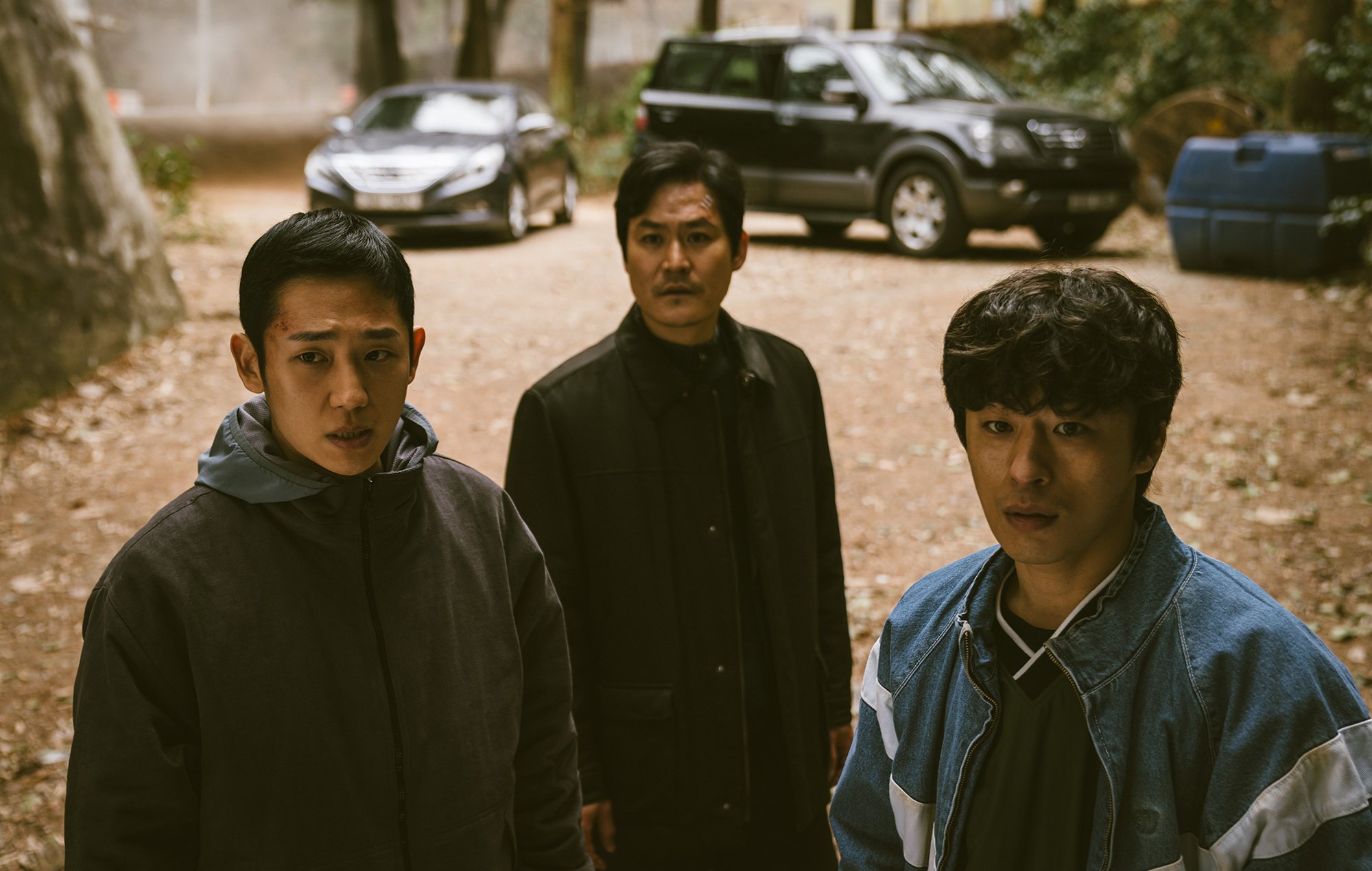‘D.P.’ Review: Netflix K-drama Sheds Light on Mistreatment in the Military
The 2021 Netflix Korean drama D.P. tells the story of an army enlistee tasked with bringing back deserters. The 6-episode drama received high ratings on the streaming platform as it shed light on the reality of South Korean men who must fulfill their mandatory military service. Along with mental and physical training, soldiers become targets of mistreatment by their superiors, often leading to desertion. While D.P. is a short drama that interweaves lighthearted and comical moments, it is mainly riddled with emotional dilemmas, high stakes, and heartache.
[Spoiler alert: This article contains potential spoilers about D.P.]

The K-drama is based on real life circumstances
D.P.’s storyline is based on South Korea’s mandatory military enlistment for men between the ages of 18 to 28. While every registered male has to enlist in the army, there have been various cases of desertion after entering. In South Korea, deserting the army disgraces the soldier and their families and is unlawful. The drama centers around a new enlisted soldier who joins the D.P. (Deserter Pursuit) team to return to civilian life to capture rogue soldiers.
The K-drama does an excellent job of magnifying the undesirability of serving in the military. Soldiers who are seen as weak or inferior are severely bullied. Soldiers also experience severe physical and mental hazing by their superiors and is often a reason for desertion. In 2014, CNN reported a soldier dying from asphyxiation after being forced fed frozen food and forced to eat his bile by his superior officers. D.P. brings a level of realism behind an aspect of South Korean culture that has not been seen before in a television series.
‘D.P.’ does not hold back on graphic stories
Viewers will find themselves heartbroken at just how graphic the K-drama gets at depicting real-life mistreatment soldiers face in the military. Ahn Jun-Ho (Jung Hae-In) is the main character but goes through the same hazing as any other soldier. In one scene, the drama depicts the small tactics superiors use against their subordinates, fully aware they can not resist. A higher-ranked soldier has his teammates stand in front of an exposed nail on the wall and proceeds to push them. Resisting the orders of a superior only leads to more severe punishment.
The drama uses various forms of bullying and hazing, from assault to verbal backlash. Viewers might find themselves cringing at the brutality of certain situations. D.P. also sheds light on the justice system as one deserter is brought back, but his superiors do not face criminal charges for the mistreatment they inflicted.
A deserter takes matters into his own hands in ‘D.P.’
Jun-Ho gets to return to civilian life to track down deserters but understands fully well why they go AWOL. Viewers will find Jun-Ho, and his teammate’s ability to sympathize with the deserters heartwarming. One deserter’s reasoning for abandoning the military was over fear of his ill grandmother facing eviction. Realizing his true intentions, the D.P. team lets him free to collect enough money to send his grandmother to a facility before turning himself in.
The K-drama’s final episode is where the storyline showcases the extremes of mistreatment in the military that is hard to stomach. The D.P. team must bring back a soldier who was friends with Jun-Ho. They soon learn the severity of the mistreatment he was facing. His superiors would force him to perform sexual acts against his will, beat him, and hold a lighter to his extremities.
D.P. uses this soldier’s story to depict how far things can go as the soldier breaks and goes AWOL to seek revenge on his superior, who finished his military service. At the end, surrounded by a S.W.A.T. team close to the barracks, the soldier realizes he has nothing left. He dies from a self-inflicted gunshot wound stating he at least had to do something.
The aftermath and superb acting on all sides
What made the Netflix K-drama even more impactful was the aftermath of the soldier’s death. Viewers are in for one final scene that showcases how frequent mistreatment occurs despite a soldier’s death. As the news reports recent events, a group of soldiers in the barracks bully the deceased soldier’s friend. The scene cuts to show the soldier’s friend holding a rifle and repeating the exact words, “I at least have to do something.” Viewers are left hearing a series of gunfire.
Jung Hae-In’s portrayal of Jun-Ho was superb throughout the K-drama and set the emotions needed for the rigorous story. Jung had to portray Jun-Ho stuck between fulfilling his duty as a soldier and his moral decisions. Jun-Ho battles trying to convince soldiers to return knowing the brutality they faced. The actor did a swell job showcasing his character’s thought process of getting inside a soldier’s head.


